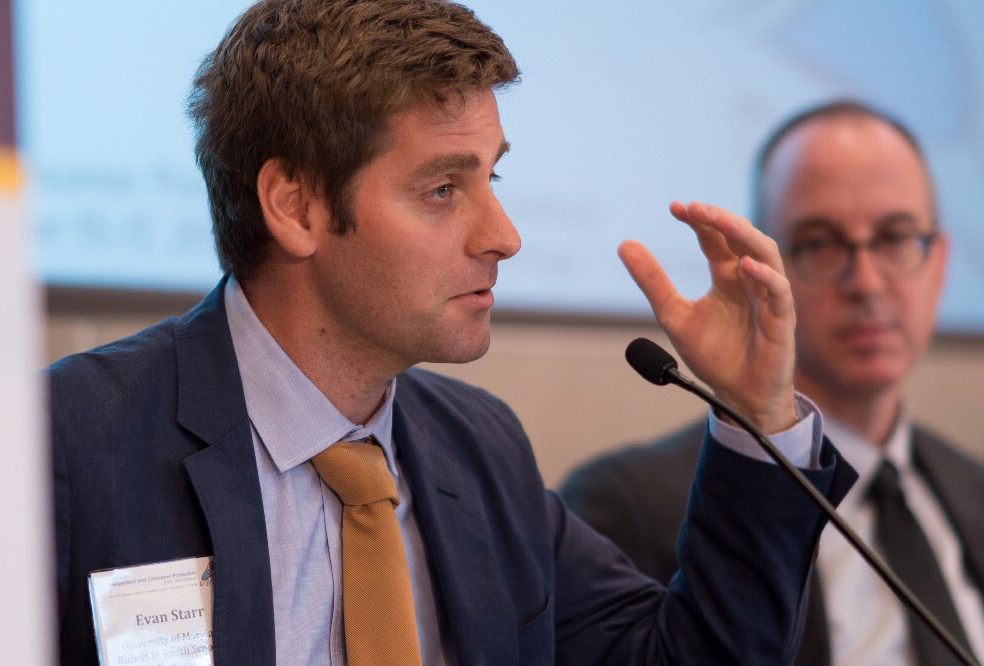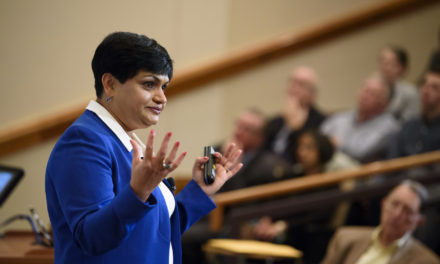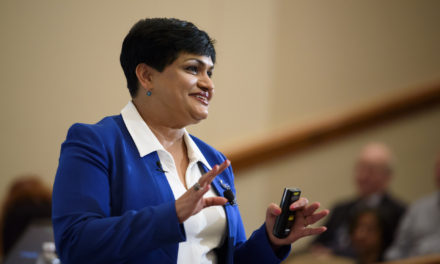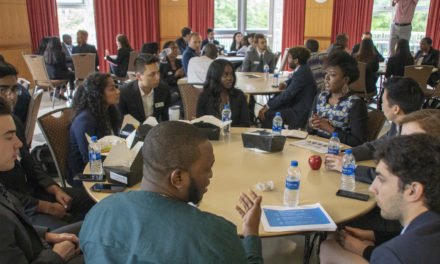Evan Starr Participates in FTC Hearing on Labor Markets and Antitrust Policy
Evan Starr Participates in FTC Hearing on Labor Markets and Antitrust Policy

“As a coach and volunteer for Girls on the Run of Silicon Valley, I may not create or help develop a program that has similar goals and structure to that of Girls on the Run International within a two-year period of my involvement with Girls on the Run,” read Evan Starr aloud. He was reading from a Silicon Valley non-profit’s noncompete agreement.
Starr, who read the noncompete as part of a panel within the latest Federal Trade Commission (FTC) Hearings initiative, “Competition and Consumer Protection in the 21st Century,” wished to underscore how far-reaching and binding such agreements can be, even for jobs that don’t merit them, such as low-wage or volunteer positions, and even in places like California, where such agreements are not generally enforceable.
Starr, an Assistant Professor with the Robert H. Smith School of Business at the University of Maryland, was part of hearing three, entitled, “Labor Markets and Antitrust Policy.” He sat with four other participants including Martin Gaynor from Carnegie Mellon University (former Director of the Bureau of Economics at the FTC); Renata Hesse from Sullivan & Cromwell LLP (former Head of the U.S. Department of Justice Antitrust Division), Jonathan Jacobson from Wilson Sonsini Goodrich & Rosati, and Eric Posner from the University of Chicago Law School. These panelists, as well as others in the prior panel on “The Economic Evidence of Labor Market Monopsony”, have either extensive experience within the FTC or the DOJ or have written highly relevant papers examining the sources and effects of monopsony power. The resulting discussions, including this hearing, were a result of this research and recent calls for the FTC to consider whether and how it might curtail monopsony power. Starr was asked to participate in particular because noncompete agreements are explicitly anticompetitive labor market practices that prohibit workers from both joining and starting competing firms.
Compared to product markets, labor markets have received comparably little attention. But experts have begun to recognize that despite high productivity, wages in the United States are stagnant. Why this is the case isn’t well-understood, but amongst experts there is a great deal of concern. What role can and should the FTC play in alleviating this? Could this indicate growing monopsony power?
A monopsony is basically a monopoly, but instead of the seller having all of the power and leverage, (think Ma Bell) it’s the buyer who has that power. In the case of employers, they are essentially buying labor from workers. And, the experts say, there is evidence to suggest that there are signs of a monopsony amongst certain employers. Professor Starr, known for his ground-breaking research on non-compete agreements, spoke about their use, particularly for low-wage earners, and how they contribute to monopsony.
After stressing its nascence, Starr elaborated on the findings of his research on noncompete agreements. He explained that logically, if one believes a labor market to be competitive, workers sign these sorts of agreements because there are other benefits to be gained by them, such as greater wages or a really good benefits package. Or, the worker may choose not to sign the agreement at all, reasoning that he or she can go out and quickly find similar work. “But if you think that the labor market is not competitive, then the worker might just sign that contract because maybe he doesn’t have another offer and he’s got to put food on the table tomorrow,” said Starr. “The point that I’m really trying to crystalize here is that non-competes are a source of monopsony power in that they increase the moving costs to competitors, but the price that firms pay for that monopsony power depends on the competitiveness of the labor market.”
In practical terms, firms are able to keep wages low, and benefits slim, because workers have no choice but to accept these conditions. Starr also pointed out that these sorts of agreements stymie entrepreneurial growth as well as traditional job growth.
Other members of the panel discussed issues like collusion between business to keep wages artificially low, and whether antitrust had a role to play in stopping monopsonistic practices like wage suppression, and what that role should be. Panelists also discussed what role mergers and acquisitions may have in contributing to labor market monopsony, since the pool of potential employers shrinks when businesses merge, and whether or not antitrust has been underenforced.
Orchestrating this and other panels where the FTC listens to testimony from research experts, like Starr and his colleagues, is a step towards finding data-driven, practical solutions to long-standing issues in the areas of labor competition and consumer protection.
Lia Kvatum is a freelance writer and producer based in Washington, DC. In addition to the Ed Snider Center, her clients include The National Geographic Society, The Smithsonian Institution, PBS, and the Washington Post. More of her work can be seen at LiaKComms.com.




